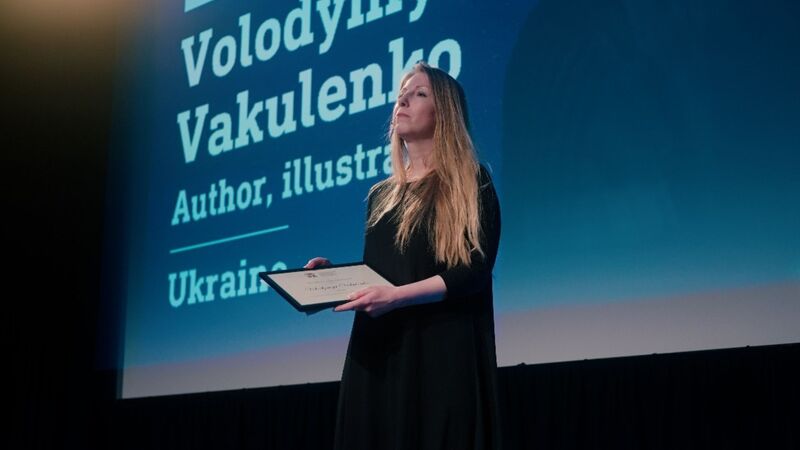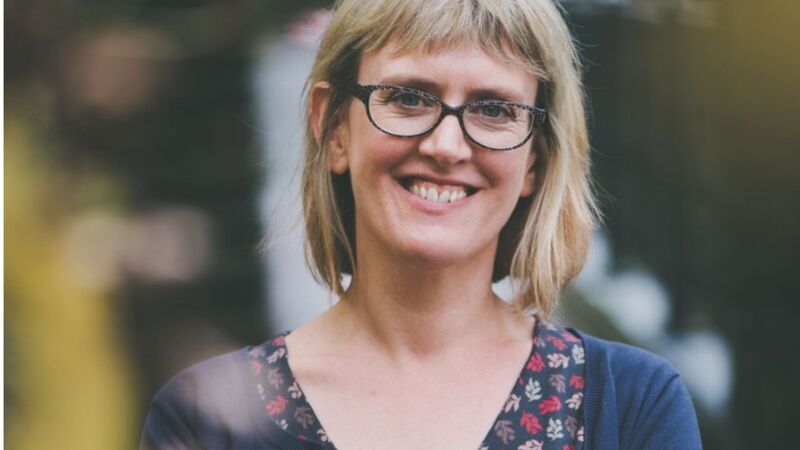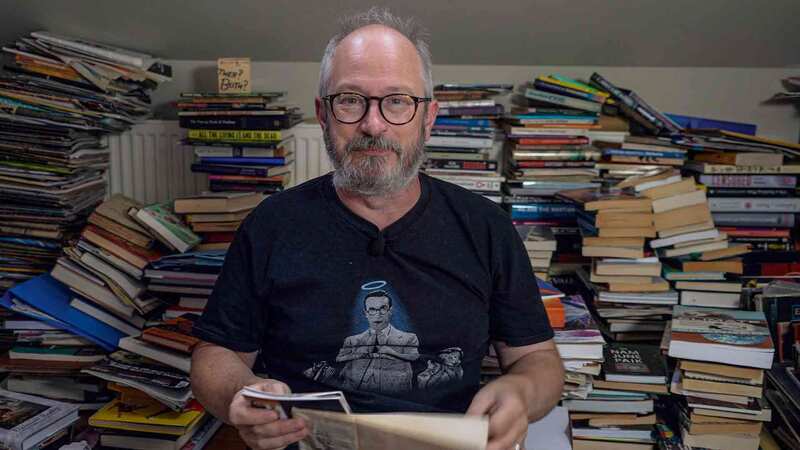You are viewing your 1 free article this month. Login to read more articles.
Booksellers 'thrilled' by Flanagan Man Booker win
Booksellers have reacted positively to the win by Australian Richard Flanagan of the Man Booker Prize 2014, with his sixth novel, The Narrow Road to the Deep North (Chatto). The novel, a love story set during World War Two, and inspired by the author's father's experiences in a prisoner of war camp, was described as "a literary masterpiece".
The winner of the £50,000 award was announced last night (14th October) at a ceremony at London's Guildhall, relayed live – although with bad sound problems - on BBC TV News. HRH the Duchess of Cornwall presented the winner's trophy.
The judges – who reportedly struggled over the decision to crown Flanagan, and were not unanimous in their choice - described the novel as "a harrowing account of the cost of war to all who are caught up in it", as it questions the meaning of heroism, the book explores what motivates acts of extreme cruelty. Chair of the judges A C Grayling said: "The two great themes from the origin of literature are love and war: this is a magnificent novel of love and war. Written in prose of extraordinary elegance and force, it bridges East and West, past and present, with a story of guilt and heroism. This is the book that Richard Flanagan was born to write."
In his acceptance speech, Flanagan said: “In Australia the Man Booker Prize is sometimes seen as something of a chicken raffle. I just didn’t expect to end up the chicken.
“I don’t come out of a literary tradition. I come from a tiny mining town in a rainforest in an island at the end of the world. My grandparents were illiterate and I never expected to stand here before you in this grand hall in London as a writer being so honoured. Perhaps in consequence I don’t share the pessimism of the age about the novel, and they are one of the great, our greatest, spiritual aesthetic and intellectual traditions.
“As a species, it is story that distinguishes us, and one of the supreme expressions of story is the novel. Novels are not content, nor are they a mirror to life, or an explanation of life, not yet a guide to life. Novels are life or they are nothing."
Asked how he would spend his prize winnings, Flanagan said: "I'll do what everyone else does with money, live. The prize money means I can continue to be a writer."
Poet Andrew Motion, speaking to the BBC about the win, said Flanagan's novel had "ambition and stateliness" but was a more "traditional" winner than others on shortlist would have been.
Commenting on the win, Waterstones fiction buyer Chris White said: "The best book on an exceptionally strong shortlist has won. Everybody in the book industry worth their salt is trying to bring wonderful books to a wider readership and, with this winner, the Man Booker has achieved just that. I’m thrilled for Richard Flanagan and delighted that bookshops around the country will have an exceptional book to champion."
Jonathan Ruppin, web editor of Foyles, said: “From a superb shortlist, this was – very narrowly – my favourite, because it succeeds brilliantly in everything Flanagan is trying to do: his depiction of the Burma Railway is unstinting in its brutality, yet every death is a distinct tragedy, a life pointlessly ended. But its true genius is to portray the irreversible warping of the human spirit wrought by war. It's one of the truly great winners of the Prize, one that will be widely read not least because it's impossible to lay aside completely and forget.”
Peter Donaldson, owner of Red Lion Books in Colchester, said: "There has been good interest in the Booker shortlist this year, more so than lots of other years. I think having paperbacks available has been a big help, it makes it so much more accessible – We Are All Completely Beside Ourselves has been our bestseller from the list by some way.
"People will be very interested in reading the Flanagan now it has won. It's nice having some big hitters on the list, like Ali Smith and Howard Jacobson, but part of what people like about the Booker is that is introduces you to writers you haven't come across before, and Flanagan could do very well. I have two in stock and was poised over the order button when the announcement was made."
Chatto publishing director Clara Farmer said Flanagan had "always been one of the world's most compelling writers", and added: "I am thrilled that the Man Booker jury has chosen The Narrow Road to the Deep North as this year's best novel in this toughest of years, with the most dazzling of shortlists. Richard's book endures long beyond this evening though -- vivid, powerful and everlasting, it is a novel that lives in the heart of all who read it."
Vintage is to print 100,000 extra copies of The Narrow Road to the Deep North, and said it also expected "substantial e-book sales". It will run an "extensive, co-ordinated" marketing and publicity campaign until Christmas to "capitalise on the success of the Man Booker".
Flanagan, who is Tasmania born, is the third Australian to win the award, following Thomas Kenneally with Schindler's Ark (1982) and Peter Carey, who won with both Oscar and Lucinda (1988) and The True History of the Kelly Gang (2001). He will take part in his first public event as winner of the prize at the Apple Store, Regent Street, on Thursday 16th October.
Flanagan has been one of the lower sellers of the titles on the Man Booker shortlist ahead of his win, selling 3,882 copies, worth £55,000, via Nielsen BookScan records. His life sales value via Nielsen BookScan stands at £440,000, £260,000 of which are from Gould's Book of Fish (Atlantic), which won the 2002 Commonwealth Writers' Prize.
Also shortlisted were Ali Smith for How to Be Both (Hamish Hamilton), Karen Joy Fowler for We Are All Completely Beside Ourselves (Serpent's Tail), Howard Jacobson for J (Jonathan Cape), Neel Mukherjee for The Lives of Others (Chatto) and Joshua Ferris for To Rise Again at a Decent Hour (Penguin). Fowler's novel has been the run-away favourite with book buyers selling 53,955 since the longlist announcement.
Grayling was joined on the 2014 panel of judges by Jonathan Bate, Oxford Professor of English Literature and biographer, Sarah Churchwell, UEA’s Professor of American Literature, Daniel Glaser, neuroscientist and cultural commentator, Alastair Niven, former Director of Literature at the British Council and at the Arts Council, and writer and former Times literary editor Erica Wagner.















